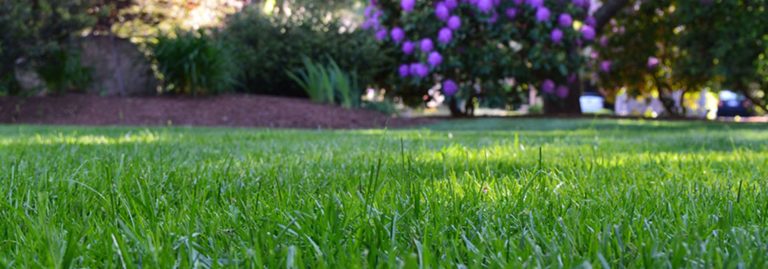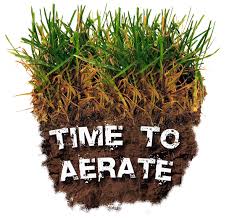We hope you and your lawn are in good health. Our team at Moore’s Lawn Maintenance is committed to providing you with the best possible service and care for your lawn. Our weekly emails and blogs are an extension of that commitment, providing you with helpful tips and information to help you maintain a beautiful, healthy lawn.
The importance of soil health for a healthy lawn cannot be overstated. Soil is the foundation upon which your lawn grows, and its condition directly impacts the vitality and appearance of your grass. In this blog post, we'll explore the significance of soil health in maintaining a lush and vibrant lawn.

Nutrient Availability: Healthy soil is rich in essential nutrients like nitrogen, phosphorus, and potassium, which are vital for plant growth. These nutrients are made available to grass and other plants through soil health. Without a nutrient-rich soil foundation, your lawn may struggle to thrive.
Root Development: Strong and deep root systems are the key to a resilient and vigorous lawn. Healthy soil provides the necessary support and nutrients for roots to grow deep, making your grass more drought-resistant and less susceptible to damage from pests and diseases.
Water Retention: Soil that retains water effectively ensures that your lawn has a consistent source of moisture. This helps your grass withstand periods of drought and reduces the need for frequent watering, contributing to water conservation efforts.


Aeration and Drainage: Healthy soil has good aeration and drainage properties. It allows air to reach the roots and excess water to drain away, preventing waterlogged soil and root suffocation. Proper aeration and drainage are critical for preventing soil compaction and promoting healthy root growth.
Microbial Activity: Healthy soil is teeming with beneficial microorganisms, including bacteria and fungi, that break down organic matter and make nutrients available to plants. These microorganisms contribute to soil structure and overall soil health.
pH Balance: Soil pH, which measures the acidity or alkalinity of the soil, is crucial for nutrient uptake by plants. Healthy soil maintains an optimal pH range, ensuring that essential nutrients are available for your lawn.
Weed and Pest Control: Healthy, well-nourished grass is more resistant to weed infestations and less susceptible to pest damage. Proper soil health can help reduce the need for chemical treatments and herbicides.


Disease Resistance: Soil health also plays a role in disease resistance. Strong, thriving grass is less likely to succumb to diseases, and healthy soil provides the foundation for robust grass growth.
Environmental Benefits: Soil health contributes to the overall environmental health of your lawn. Healthy soils promote biodiversity, reduce erosion, and support the growth of beneficial plants that can attract pollinators and wildlife to your garden.
Long-Term Lawn Sustainability: Investing in soil health is a long-term strategy for maintaining a lush and beautiful lawn. Healthy soil requires less maintenance and is less susceptible to problems, reducing the need for costly repairs and treatments in the future.

In conclusion, soil health is the cornerstone of a healthy lawn. By nurturing and maintaining the well-being of your soil, you provide the foundation upon which your grass can thrive. It’s an investment in the long-term beauty and sustainability of your lawn, ensuring that it remains vibrant, resilient, and an asset to your outdoor space.
Weekly inspirational quote: “Spread love everywhere you go.” — Mother Teresa

